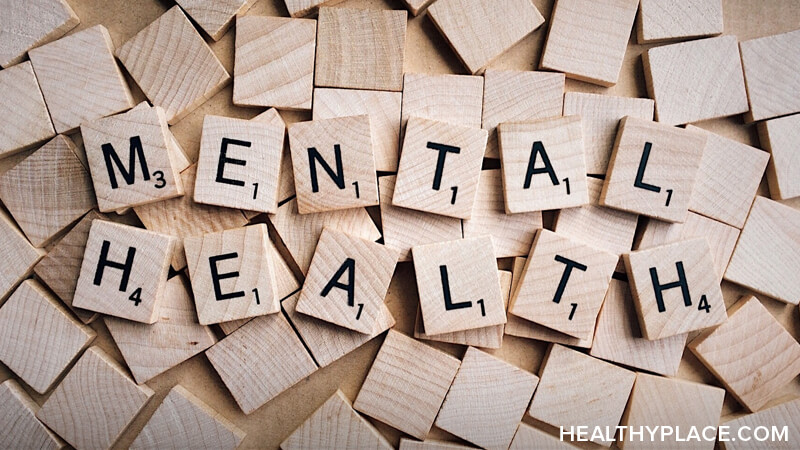Protect Your Mental Health When Coping with Depression

I'd like to discuss ways you can protect your mental health while we cope with depression because World Mental Health Day is Wednesday, October 10, 2018. Depression itself is stressful enough on our brains, but then certain outside factors exist that can make things worse. How can we avoid, or limit, these stress-inducing situations and people that can worsen our depression? I've discovered some strategies that protect your mental health and work for me, and I'd like to share them with you.
Strategies that Protect Your Mental Health
Take Breaks from Social Media
The first strategy I've found is to take breaks from social media. For me, this means both temporary breaks from all websites that have the potential to increase my stress level and also unfriending/unfollowing certain people. For example, a certain story that has been in the news lately has caused me to struggle greatly with painful memories I thought I'd overcome. I've regressed in my recovery; in short, I've had to schedule more frequent visits with my psychiatrist and therapist, and my psychiatrist has increased the dosage of the antidepressant I currently take.
In order not to worsen my depression or cause me more struggles with my mental health, I have chosen to unfriend/unfollow certain people on social media who I feel have been insensitive toward victims of certain types of crimes. I have also taken breaks for a day and "hidden" or "blocked" certain news sites or pages. I've realized that I don't have to be aware of every single thing that is going on in the world or in this country. My brain cannot handle it. If you find certain news stories or people triggering, then hit that unfriend or unfollow button. You must look after your mental health; it is your priority.
Set Boundaries
A second thing I've done is to set boundaries. My therapist and I have discussed this in great detail. I have a tendency to want to make the people I love happy. Before I learned how to set healthy boundaries, I did so many things for my family, but in reality, it was too much. I ended up feeling exhausted and resentful. Back then, I would also allow others to take advantage of me or say rude or incorrect things to me without speaking up for myself. Then, naturally, I felt used and unimportant.
I now realize that I cannot "make" anyone else happy; I am not responsible for anyone else's feelings. I've found my voice and learned how to use it appropriately. I know how to say no to people. My family members now share the responsibilities of caring for our home with me. Because of boundaries, my mental health has improved greatly. In order to protect your mental health and be able to better cope with depression, you must set and stick firmly with your healthy boundaries. Also, if someone does not respect your boundaries and continually tries to cross them, you may have to remove that person from your life in order to protect your mental health.
Make Time for Yourself
Finally, be sure to make time for yourself. You need to rest. Getting adequate sleep is an essential part of protecting our mental health while we cope with depression. We also need to make time for pleasure. Putting our feet up at the end of the day and reading a good book or watching a television show or movie is important for our mental health, too. We need that time to unwind and have a little break from the harsh reality that many of us face each day.
In addition to this, getting exercise is a necessary component of coping with depression and improving our mental health. Now that the weather is nice where I live, I plan to spend some time walking every day. Spending time with people we love can be restful as well. As long as we have healthy boundaries, we should be able to enjoy time with friends and family. When you find ways to relax and enjoy yourself, you can help protect your mental health and better cope with depression.
I hope you've found some ways to cope with your depression and protect your mental health. It's not just important during this time of World Mental Health, it's important year-round. I'd like to hear from you. Is there anything special that you do to improve or protect your mental health? How do you handle certain events or news stories that trigger you?
Watch this video to learn about how I'm trying to protect my mental health during a depression relapse.
APA Reference
Smith, J.
(2018, October 10). Protect Your Mental Health When Coping with Depression, HealthyPlace. Retrieved
on 2026, March 3 from https://www.healthyplace.com/blogs/copingwithdepression/2018/10/protect-your-mental-health-when-coping-with-depression
Author: Jennifer Smith
Many people with depression also benefit from seeing a psychiatrist, psychologist, or other mental health professional. For best medication consultancy, visit mygenericpharmacy.
I can vouch for the fact that medication helps a lot with depression. Thanks for sharing your views, Spencer.
A specific social anxiety would be the fear of speaking in front of groups (only), whereas people with generalized social anxiety are anxious, nervous, and uncomfortable in almost all social situations.
It is much more common for people with social anxiety to have a generalized type of this disorder. When anticipatory anxiety, worry, indecision, depression, embarrassment, feelings of inferiority, and self-blame are involved across most life situations, a generalized form of social anxiety is at work.
I don't socialize much and social media is the only contact I have with the outside world. I talk to relatives and friends. I find people that I haven't talked or seen in years. I even found an old boyfriend and we fell in love on Facebook. I know social media is addictive but I know I cannot quit cold turkey. If I had personal interaction with people I could cut down on social media. When I suffer depression it is a way that I get interested in other things but my depression.
Hello, Sharon. Thank you for your comment. I understand the connection you have to others through social media. You are not alone in this. I don't believe quitting social media cold turkey is the answer. I suggest trying to find some local groups that have similar interests to yours. That's a good starting point to finding some personal interaction and possible friendships. As those real-life relationships begin to develop, you should find yourself naturally spending less time on social media.
I have depression ten years ago.Recently I did hospitalization about two month.by antidepressant,I overcome depression but anxiety remain.I began instagram because I like taking pic but I mind count of the like and then I feel anxiety,for example,what if won't come the like and so on.And I mind count of the like.If it reduces,I become depression mood.Sould I stop sns?
Hello, John. Thank you for your comment. It could be beneficial for you to take a social media break for a while and reach out to friends and family you have in real life or work on getting to know some new people. Sometimes the use of social media can leave us feeling more lonely than we were before we started using it.
